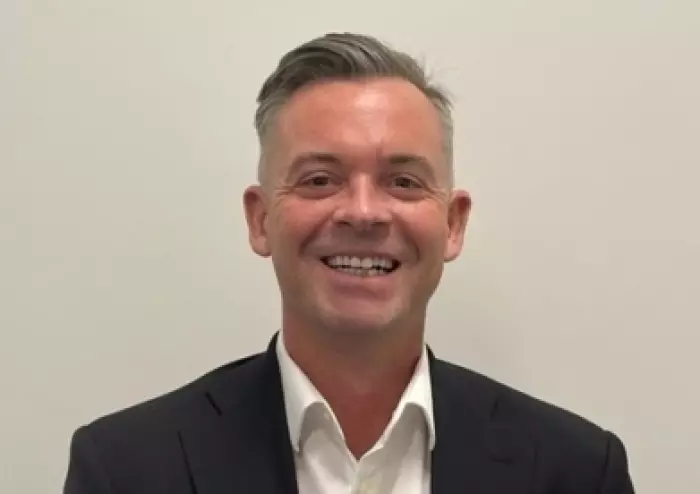The chief executive who abruptly departed from the Christchurch council-owned company that controls assets worth more than $5 billion has had millions of dollars in damages awarded against him by United States courts, BusinessDesk has learned.
Tim Boyd resigned from Christchurch City Holdings Limited (CCHL) last week, a week after the resignations of the longstanding board chair and another director.
He started in the role barely six months ago, leaving his job as a senior policy adviser at the Ministry of Social Development for the job at CCHL, which has previously paid close to $400,000 a year.
A BusinessDesk investigation has unearthed three default judgments against Boyd by courts in the US awarding damages worth more than US$17.5 million ($28.5m). Multiple former associates spoken to for this investigation alleged they lost money due to their involvement with the Australian and expressed shock that he was appointed to a CEO position in NZ.
“There is a wide swathe of damage in Tim’s past,” John Linton, a Texas entrepreneur who invested in a business Boyd set up to provide pet loans, Best Friends Credit, alleges. “He seems to move from one jurisdiction to another to try and evade responsibility.
“I’m shocked that he got a government position of any responsibility.”
CCHL controls six trading companies on behalf of the council, including Christchurch International Airport, Lyttelton Port Company, electricity network company Orion and maintenance and construction company Citycare Group. Its latest accounts show the CCHL group of companies held assets worth more than $5b on behalf of their ultimate owners, the people of Christchurch.
A lawyer representing Boyd said the outgoing CCHL CEO had no outstanding debts in the US that he was aware of, and that Boyd fulsomely disclosed his work history when he applied for the CEO position, noting the view that any suggestion he withheld relevant information was defamatory.
A response from the same legal adviser stressed that Boyd had no criminal convictions in NZ or elsewhere, which reference checks would have been looking for.
The three judgments against Boyd are default judgments, meaning he didn’t engage in the proceedings. BusinessDesk provided copies of the two most significant judgments to CCHL which forwarded them to Boyd. Via his lawyer, he said it was the first time he had seen one of the judgments, and he was unaware of the other. He hadn’t been served in either case, Boyd said, although BusinessDesk has obtained documentary evidence that says he was personally served with the most substantial judgment in California in late 2016.
Pet loans and a disgruntled investor
That judgment involved Linton, the Texas businessman who invested in a company called Best Friends Credit, which was set up to provide unsecured, immediate loans for veterinary care, according to its now defunct website.
“If I were to look at it realistically, I think he actually had quite a clever vision,” Linton said of Boyd. “The need in the market was there and I think he's a very smart guy.”
“The representations he made to raise the money were that things were done that weren’t done,” he alleged.
Linton sued in a Texas court and won a default civil judgment against Boyd. The 2016 judgment, which said Boyd and Best Friends Credit had “committed fraud”, awarded Linton US$10m in damages and a further US$5m in exemplary, or punitive, damages, against Boyd.
The lawyer acting for Boyd said Best Friends was sold and no transactions were ever funded or entered into. Until CCHL forwarded on the judgment, the statement said Boyd had been unaware of any legal proceedings served or initiated by or in relation to Best Friends Credit.
Linton disputed this. He believes Boyd knew he was being sued.
The US businessman provided a proof of service document lodged with a California court that said Boyd was personally served with the judgment in late 2016.
Linton said he hadn’t received any money from Boyd, and regretted getting involved with the Australian.
“He’s so compelling and convincing that you don’t do the diligence you normally know you should do.”
Scrubbed from the internet
The Linton judgment was also referred to on a website called timboydaustralian.com that Boyd sought to have taken down by an Australian court in 2019, alleging it contained defamatory material.
The court directed Automattic, the owner of website builder WordPress, to disclose the identifying details of the person who had registered the website. The company didn’t respond to requests for comment.
Boyd’s lawyer confirmed Boyd had taken action against Automattic, adding a private settlement was entered into and the site was taken down.
‘Intentional fraud’
BusinessDesk has also spoken to Boyd’s ex-wife in the US, who requested her name not be used. Like Linton, the US woman provided substantial documentary evidence of the lengths her lawyers took to serve Boyd with legal proceedings she took against him as well as a default judgment she won against him, including emailing copies of the judgment to multiple email addresses linked to Boyd.
The woman said she was motivated to take action to indemnify herself against any judgments awarded against Boyd for the time they were married.
In a 2017 judgment, a California judge granted the indemnity and also awarded the US woman more than US$2.5m from Boyd in “compensatory damages for intentional fraud”.
She has yet to receive any money.
Boyd’s lawyer described the divorce as “acrimonious”, adding that both parties made a series of allegations against each other at the time. As for the judgment, the statement said: “We are instructed that this is the first time Tim has seen this judgment and that he has not been served with those proceedings or the judgment.”
The US woman said she felt shocked and disgusted Boyd had been appointed to a CEO role in NZ, adding she was surprised he had accepted such a public position given his scant online presence on professional social media platforms like LinkedIn.
She believed there had been a “serious lack of due diligence”.
Boyd’s lawyer said Boyd had worked on contract for the Australian government in Papua New Guinea in the early 2000s and had complied with advice not to use social media “and has not seen the need to participate in social media since”.
A blank LinkedIn page describing Boyd as the CEO of Pico Pharmaceuticals was online as of a week ago.
CCHL to review recruitment processes
After BusinessDesk provided CCHL with copies of the US judgments against Boyd, the company strengthened an earlier statement regarding its recruitment processes, which it said it would now be reviewing.
CCHL said it had sought independent advice and support to recruit Boyd, as was standard practice for its executive appointments. It worked with Christchurch company Decipher Group on the recruitment, the holding company said in a statement.
“The scope of these activities, as presented to CCHL in our initial assessment of the recruitment process, was in line with industry standards.
“However, the board will be undertaking a thorough review of recruitment systems and processes, including those services provided by consultants.”
In a statement, Decipher Group director and co-founder Leanne Crozier said Boyd applied for the CCHL position through Decipher.
The company ran a rigorous background check in line with industry standards, she said.
“Civil matters in the US would not be picked up by these checks.”
Crozier wouldn’t comment on how much Decipher was paid by CCHL and said that a post on the Decipher website highlighting the firm’s involvement in Boyd’s appointment had been removed “through the normal process” of placed candidates being removed and put on “as time passes”.
However, other earlier appointments remain on the Decipher website.
 Tim Boyd's Jack's Point bungalow (Image: BusinessDesk)
Tim Boyd's Jack's Point bungalow (Image: BusinessDesk)Who is Tim Boyd?
Timothy Ayre Boyd was born in Australia, where he obtained a Juris Doctor law degree at the University of Melbourne and a Master of Business and Technology at the University of New South Wales.
His bio on the CCHL website says he worked for PricewaterhouseCoopers, but does not mention any specifics about his years living in Los Angeles and other US cities.
When he was appointed to CCHL, the company said: “Tim brings a wealth of experience in senior executive asset management, legal, banking and financial services roles, internationally.
“He combines an understanding of the complexity of infrastructure investments with a passion for community good outcomes, and significant experience in leading teams of professionals.”
CCHL also described the appointment process as robust.
To members of the local business community, however, Boyd was a complete unknown. “I’d never heard of the guy,” said one senior figure, who spoke to BusinessDesk on a background basis. He thought “it was such an unusual thing in the NZ business community for no one to have heard of him.”
US and Australian company records list Boyd as a director of several companies, including Pico Pharmaceuticals, Best Friends Credit, Blue Print Partners and FilmOn.TV Australia.
Public records suggest that Blue Print Partners was involved in a failed deal with US company Panther Biotechnology.
A 2016 Securities and Exchange Commission (SEC) filing by Panther alleged Boyd was engaged by the company as a consultant in 2015 to assist with acquisitions. But Panther claimed that the relationship soured over a deal, brought to the company by Boyd, to acquire an Australian company, Alchemia Oncology.
In the filing, Panther alleged Blue Print failed to deliver the financing. It noted that it had commenced legal action against Boyd, but said he defaulted on the lawsuit by not responding to the complaint.
However, according to the SEC filing, a US court declined to award damages as “Boyd did not materially harm Panther”.
Boyd told BusinessDesk, via his lawyer, that he was unaware of any legal proceedings served or initiated by or in relation to Panther Biotechnology.
Acting CEO parachuted in
BusinessDesk understands that Boyd continued to contact and meet with the chief executives of the trading companies owned by CCHL in his final weeks in the job.
A day after his resignation was announced to the NZ stock exchange, an acting CEO, Paul Silk, was parachuted into the troubled holding company – this despite the fact that Boyd’s resignation doesn’t take effect until Dec 6. It’s unclear if the short-lived CEO, who co-owns a $1.3m home in Jack’s Point, a luxury estate south of Queenstown, is still being paid.
During his tenure at the holding company, Boyd went on leave while an investigation was carried out into what CCHL has described as “communications” between him and the board.
The probe concluded no further action was required and Boyd returned to work.
BusinessDesk understands a number of things contributed to relationship issues between Boyd and at least some board members, including his preference for Boston Consulting Group, a top consultancy, to help with a council-commissioned strategic review of the holding company.
When the board found out about this and how much the review would cost, the idea was dropped.
Sources have also said Boyd wanted to do a team-building exercise with the CEOs of the trading companies in Queenstown, something that did not happen due to the cost and potential perception issues associated with CEOs of publicly-owned companies jetting down to the resort town.
In its statement to the NZ stock exchange announcing Boyd’s resignation, CCHL referred to differences of opinion between Boyd and the board. The company has said Silk will act as an interim CEO while an independent recruitment process takes place to find a replacement for Boyd.
His former associates in the US, meanwhile, remain staggered he was appointed in the first place, given the legal findings against him.
“It’s shocking to me that he could get a job with that much responsibility,” Linton said.










